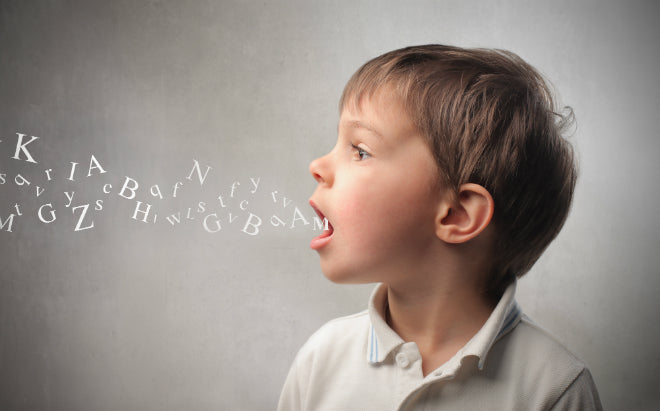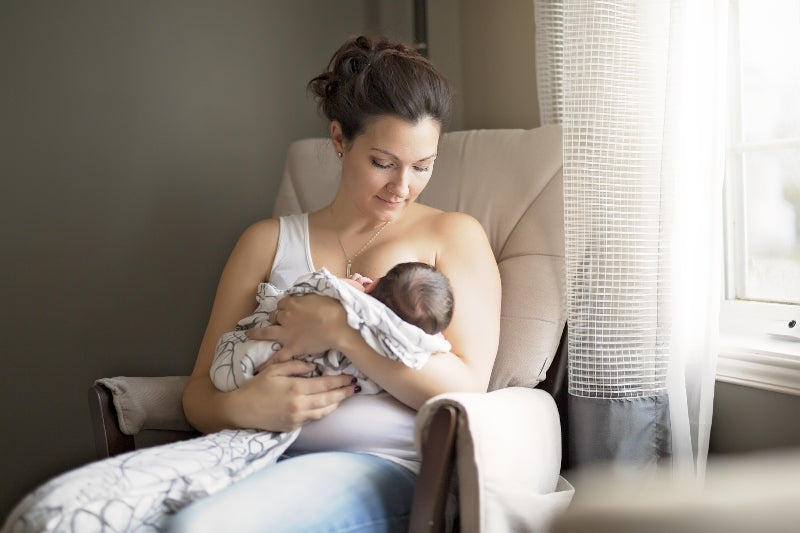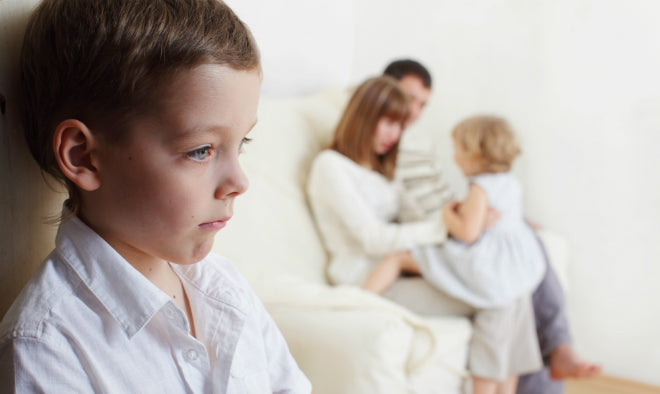Language is an inseparable part of human existence and coexistence. People learn to understand and speak their mother tongue intuitively and as if by chance from an early age. Special support is not usually necessary. Here we explain how children's language development progresses and what strategies you can use to help them learn to speak in everyday life.
Language development in the first two years of life
From the 28th week of pregnancy, the baby in the womb is already listening. Once the little one is born, it automatically learns its mother tongue(s) through interaction with its caregivers. Children do not need any special language support to learn to speak. However, a little background knowledge about the stages of development and the best way to communicate in each case can promote children's language development.
The only means of expression shortly after birth is crying. However, the first sounds that we perceive as squeaking or babbling are already formed in the following six months. Most parents intuitively speak to their babies in a baby language that is characterized by exaggerated intonations, few words and a high-pitched voice. This form of speech is ideal for the baby.

Children learn to imitate their first sounds and words at an early age
By their first birthday, babies have mastered simple syllables, which they like to string together into long chains. Typical are "bababa" or "mamama". At this stage, parents often recognize the first word, such as "mama" or "papa". The baby needs some time to understand the meaning of his expressions. Overall, it recognizes the connection between language and the environment more and more clearly. By the age of twelve months, they understand simple statements and questions without being able to respond verbally.
In the second year of life, the toddler initially communicates in one-word language. This leads to generalizations (all four-legged friends are called "Miezi") and narrowing down ("ball" is only the child's own cloth ball). The vocabulary is dominated by nouns. From a repertoire of 20 to 50 words, two-word language begins. By the second birthday, language skills develop to such an extent that the toddler can understand longer sentences.

Mother and daughter practise speaking
From the vocabulary explosion to learning to read
Throughout children's language development, comprehension always precedes production. Children always understand words and grammatical constructions before they use them themselves. Even if language development follows a certain pattern, parents should not be too strict about the age requirements. Children are all unique and undergo individual development that deviates more or less from the average.
In the third year of life, the 50-word limit is exceeded at the latest. This is when the so-called "vocabulary explosion" occurs. This is characterized by rapid learning of new words. Two-word sentences develop into three- and multi-word sentences. Difficult sounds are pronounced more and more precisely and the caregiver is constantly bombarded with questions such as "What?" and "Where?". Ideally, you should encourage your child during this phase by reading stories to them. New words are virtually absorbed.

Reading a bedtime story
By the fourth birthday, language development is progressing in such a way that grammatical understanding becomes increasingly differentiated. Terms with "if - then" are now understood without any problems. The toddler also learns to differentiate between himself and other people. The words "my", "your" and "I" are finding their way into active language use. Interactive games, such as the store, now offer ever new possibilities for use.
By the time they start school, toddlers are able to put verbs into the appropriate tense. Sentence structure becomes increasingly complex. Frequent "why" questions are a sign of curiosity and offer you, as parents, the opportunity to put things into new words. Most children can already count to 10 before the first grade. They tell stories and explain their thoughts. Even the most difficult sounds such as "x" and "s" can now be pronounced.
What characterizes good language development in children?
Children only need very simple basic conditions to learn to speak. Basically, you should always encourage your little one by communicating with them a lot. The same applies to any educators, kindergarten teachers or childminders. Language development through games, for example, is a child-friendly way to improve vocabulary and grammar.

Language development
The foundations for the mother tongue(s) are laid by the age of three. A real need for support is not usually identified before the child's sixth birthday. If the pediatrician suspects a need, he or she will refer you to a speech therapist. The fine motor skills that speech demands of children should not be underestimated. Lips, breath, palate, teeth and tongue must be brought into a complex interplay. Regularly ask questions to encourage them to speak. You should also give your toddler prompts. This will help you to recognize the level of your child's knowledge. Words and phrases can be learned quite easily through play. Engage in the popular role-playing games as often as possible.
What can parents do to ensure excellent language development?
Language development usually happens quite incidentally in everyday life and through play. Children can easily derive meanings and contexts from routine situations. Simply comment occasionally on what you are doing at the moment. Always use the same word to name objects.

Learning through play
Repeating similar sentences ("The bear is going to sleep now") is also helpful. These simple statements are very good for identifying word boundaries. Slight variations show the variety of linguistic turns. Pay attention to your child's skills. Too many simplifications inhibit children's language development. It is perfectly acceptable to use complex formulations in interactions.
Listening to complete sentences is necessary to develop an understanding of grammar. Provide assistance by continuing or adding to simple statements made by your child. Incorrect sentences can be corrected. Looking at a picture book is a great way to encourage this. Give the little ones the opportunity to describe what they see.
Creativity helps
As language and fine motor skills are closely linked, even activities such as handicrafts and painting help to promote language. Combine drawing a picture with questions about the content. Make objects or animals together and discuss your approach. The threading of craft beads on strings is a particular challenge for little fingers. Ask about the colors of the beads and use motif beadsthat can be named.

Last but not least, games have huge potential for learning and promoting children's language development. For some games, you don't even need any materials. "I see what you don't see" or "I'm packing my suitcase" can be played anytime and anywhere.










